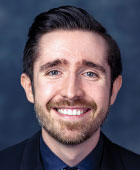Experienced Video Gamer Points Out Signs of Gaming Addiction
Abstract
Youth who devote extraordinary time playing video games may need psychiatric intervention to explore motives.
In my life before medicine, my hobby of playing competitive video games took a considerable amount of my free time, and I achieved ratings that listed me as one of the highest rated players on the continent in multiple games. Reflecting on this in the context of the growing focus on technological addictions, I find it exceptionally relevant to highlight what is bound to be an increasingly common encounter: children spending extraordinary time playing video games in an effort to make a career out of it.
Although just a hobby for me, playing video games as a profession is an increasingly popular aspiration for children and adults alike, with many avenues available to generate a sustainable income including livestreaming of gameplay, video creation, and tournament play. Competitions for these games have had their prize pools explode in the magnitude of millions of dollars for the winning teams, and sites like Twitch and YouTube offer the pathway to an extremely lucrative career for the top content creators on their sites.
The cost of achieving the skills to perform at the top level is similar to athletes in physical sports, including the maintenance of physical and mental health along with the devotion of thousands of hours of practice. Competitors will frequently play over 10 hours a day to outperform their competition, and some organizations that contract with these players hire chefs and personal trainers to minimize downtime and maximize time spent practicing.
But akin to physical sports, this represents a fraction of a percent of players. Where does this leave psychiatrists when a young person spends excessive time playing video games, causing great parental distress? Asking key questions may clarify important details for the physician:
What are the motivations behind the youth’s extensive playtime? Is there a certain achievement, ranking, or career aspiration they’re working toward? Or are there concerns for underlying mood disorders or avoidance of responsibilities?
How likely is the youth to attain the sought-after goal? Someone who plans to play competitively should be at or near the highest rankings in the game they play. Likewise, a content creator/entertainer should see consistent growth in viewership and followers.
What is the youth’s backup plan? Considering how few people make it in this venture, having a timeline for how long the youth will pursue this endeavor before reconsideration can help maintain realistic expectations.
Is the youth managing his/her health and responsibilities? With professional gaming teams recognizing the value of physical and mental health, physicians are uniquely positioned to encourage patients to take care of their physical and mental health in line with their goals, rather than seeing it as an obstacle to having more time to play.
How is the youth managing schoolwork? An overwhelming majority of most professional players are older than 18 as teams and tournaments have age requirements (with rare exception). It’s not uncommon to take a pause on college schoolwork to make an attempt at a gaming career. Sacrificing a high school education, however, is both unnecessary and stands to stifle fallback opportunities.
Is there overlap with other excessive technology use? While young people pursue gaming professionally might naturally end up spending more time on social media promoting themselves, it may be prudent to screen for excessive use of other technology at the same time.
In a similar vein, how is the youth’s sleep hygiene? Although the nature of video game culture often pushes even casual players to play late into the night, many professional players follow a regimented sleep routine to enhance their performance. Encouraging healthy sleep routines in an effort to play better may be more enticing than for health reasons alone.
As the popularity of video games as a hobby and career continue to grow, psychiatrists are likely to find themselves in a position to help patients and parents navigate this new digital landscape. By increasing awareness and knowing relevant questions to ask, psychiatrists may uncover motives poorly understood by parents and be presented with an opportunity to strengthen the therapeutic alliance with their patients. ■




